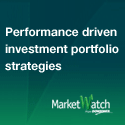Dear readers and my fellow bloggers, it’s time for the fifth edition of the Canadian Personal Finance & Investing Carnival. Once again we didn’t receive as many submissions as we’d hoped for so we went ahead and rounded up the best of the best in the realm of Canadian personal finance and investing and will now serve up our findings in this edition of the Canadian Personal Finance & Investing Carnival.
In addition, we would like to take this opportunity to invite submissions for the sixth installment of the Canadian Personal Finance & Investing Carnival slated for publishing on September 30th, 2010. So if you’re a Canadian blogger specializing in personal finance and or investing, make sure you submit your best articles for inclusion and while you’re at it, perhaps spread the word on the Canadian Personal Finance & Investing Carnival.
Having said that, may the Canadian Personal Finance & Investing Carnival now begin:
Canadian Finance Blog presents Lots to know about Canada Pension Plan, saying, “There is lots to know about the Canada Pension Plan. I thought I would post some of my favorite articles on CPP.”
Balance Junkie presents Will the Fed Save the Day?, saying, “Can a new round of quantitative easing from the Federal Reserve really cure what ails the economy?”
MoneyNing presents Second Recession: Don’t Let Fear Take Over, saying, “Whatever the circumstances, allowing fear to creep in will only make the situation worst.”
Canadian Couch Potato presents Why Every Portfolio Needs Bonds, saying, “I argue that bonds are an often under-appreciated asset class, and they belong in almost all portfolios, even those of young investors.”
In Search of Salt presents What is the Carry Trade?, saying, “The carry trade is essentially moving a low-yielding currency into a higher-yielding currency, but exchange rates pay a big part in the profits or losses.”
Investing Thesis presents Taking Advantage Of The Growth In Emerging Markets With Luisa Moreno, PhD Of Lusight Research, saying, “If a global economic recovery, especially in the emerging markets, is what you believe in, then investing in resources and commodities is likely one way to take advantage of that growth. So once again, we are thrilled to present to you a very detailed and insightful interview with a materials and metals analyst responsible for covering metal mining and steel companies across the Emerging Markets.”
My Own Advisor presents Oops!…They did it again - but are you surprised?, saying, “Mark Carney raised interest rates for the third straight time yesterday. They (the Bank of Canada) did it again, but are you surprised?”
Divestor presents LuluLemon’s second quarter, saying, “Headlines are being made that Lululemon (Nasdaq: LULU) beat earnings expectations and raised income estimates for the year.”
Canadian Capitalist presents Mutual Fund Fee Comparison Report Deeply Flawed, saying, “Mackenzie Financial is a favourite mutual fund company on this blog. Therefore, it was with much anticipation that I read Mackenzie’s latest “research” report titled Canadian Mutual Fund Ownership Costs: Competitive Relative to the U.S.. In keeping with Mackenzie’s track record, the report is based on some very questionable assumptions and data.”
Beating The Index presents How to Invest a Lump Sum of Money, saying, “We don’t always have a plan for a lump sum of money that suddenly falls in our hands. No matter what the amount is, the first thing to do is to sleep on your decision for a week at least before starting to think of your next step.”
Money Smarts Blog presents Don’t Choose Investments Because Of Tax Breaks – Selling My Labour Sponsored Funds, saying, “As I’ve complained many times over the years, I bought some LSIF (Labour Sponsored Investment Funds) many years ago. These were the worst investment ever. High fees, crazy redemption schedules and poor performance add up to a bad investment. They had great tax breaks at the time, so I committed the cardinal sin of letting taxes control my investment choice.”
Barel Karsan presents Economic Indications Aren’t So Bright, saying, “There are many indicators which attempt to gauge the health of the economy. Focusing on a single indicator, or even a single category, does not give the analyst a good enough gauge of the future of the economy. For this reason, many (including value investor Ken Fisher) consider the ratio between the coincident and lagging indicators to be the single best measure of the direction of the economy.”
Canadian Tax Resource Blog presents Sell or Redeem Shares in a CCPC, saying, “If you worked for a small Canadian controlled private corporation (CCPC) and were offered shares in that corporation there may be tax consequences if the shares are redeemed by the corporation.”
Michael James on Money presents Changes in How University Students Pay for Meal Plans, saying, “When I was a student at university the meal plan was very simple; I paid an amount up front and for four months I got to eat my fill in the cafeteria three times a day. However, things have changed for my son who just started university. I think the new system gives him too much flexibility to overspend my money.”
Canadian Financial DIY presents Investment Banks and Hedge Funds: the Bubble of the Past Quarter Century?, saying, “The Credit Bubble leading to the Crash of 2008. Who profited and where did all the money go? That’s a question I have been asking myself since 2007 and the start of the credit / financial crisis. The answer I now believe is a) employees of investment banking; b) managers / employees of hedge funds; c) shareholders with stakes (i.e. whether as separate entities or whose profits flow up to a parent entity) in investment banking and hedge funds.”
How To Invest Online presents ETF Comparison: Three New China ETFs for Canadian Investors, saying, “The economies of the USA, Europe and even Canada may be struggling to avoid a double dip recession but that of China is powering forward with recent annualized growth of over 10%. The case for investing in China as a separate individual country holding becomes more compelling every day. As investor interest in China grows, so do the ETFs available.”
The Dividend Guy Blog presents Think About The Future: Who Can Increase Their Dividend?, saying, “Receiving monthly dividends from your portfolio is always appreciated. What is even better, is to pick stocks that have the greatest potential to increase their dividend in the upcoming years.”
Andrew Hallam presents You want to be a good investor? Learn to ignore people, saying, “As an effective investor, it’s essential that you learn to ignore other people, at times. Some of histories smartest people have lost fortunes based on following the collective wisdom of the masses.”
Million Dollar Journey presents A Primer on Corporate Bonds – I (Credit Ratings), saying, “Corporate bonds are issued by companies to gather funds for their business. With thousands of companies issuing bonds, where does one start to make the list smaller?”
Shocked Investor presents Lots of New Billions Here and There Needed By Banks: Who Wants to Own Banks That Can’t Pay Dividends for 3 Years!, It turned out that DB Deutsche Bank AG needs $12.5B, not ‘just’ the $11B that was reported last week. Hello dillution.”
Invest It Wisely presents Is It Worth It to Have an Emergency Fund, or Should I Pay off My Mortgage Instead?, saying, “Ever wondered if you should be saving up money in an emergency fund or paying off your debt instead? While paying off debt is clearly beneficial in the case of credit cards, the case is less clear when it comes to lower cost long-term debt, such as mortgages.”
Canajun Finances presents Employment and Unemployment up in August, saying, “So more jobs, but also more folks looking for jobs, means we end up with both indexes going up, unfortunately. This seems to buck what the U.S. is going through, where they are not getting back their employment numbers, so Canada seems to be doing a little better than our American Cousins.”
Young and Thrifty presents 6 Tips for Buying Organic On the Cheap, saying, “More often than not, buying organic can mean paying double the price for something that isn’t organic. There are certain things that you should buy organic, and things that you don’t need to fuss too much about (like organic bananas).”
Thicken My Wallet presents How the workplace is different than school, saying, “My last couple of employees have been recent graduates of university (less than 2 years). Contrary to the bad press about Generation Y, they were all hard-working and dedicated individuals. What I did notice was that there was, for lack of a better term, a “soft” skill-set missing from these employees.”
The Passive Income Earner presents ESPP : When Should You Sell?, saying, “ESPP stands for Employee Stock Purchase Plan. I have had ESPP for many years now. I have never calculated my end results but that’s an interesting thought. Every situation will be different and based on the company you work at since it’s tied to the company’s stock price.”
Financial Highway presents 20 Basic Steps to Keeping Bad Debt at Bay, saying, “Getting yourself out of debt is not an easy thing. Once you’ve done it, you never want to be in that position again. In fact, many of us become so afraid of going back into debt that we limit ourselves by refusing to own credit cards or take out loans. That’s not necessarily the financially smart way to move forward with your finances. Instead, you just need to take smart actions to keep bad debt at bay.”
Canadian Dream presents Poor Planning Gone Mad, saying, “At some point in their lives I think everyone has met someone who was bad at planning. Now normally this isn’t a big problem since they only mess up their own lives with perhaps some limited spill over to immediate family. Yet what happens when governments are the ones who are poor at planning?”
Boomer and Echo presents Financial Eggs In One Basket?, saying, “Should you keep all your accounts, loans and investments at one financial institution, or spread them around? When I worked for a bank, when I had a new customer referral – for a mortgage, say – the goal was to transfer in all of their financial accounts. The reasoning behind this was that it would be more difficult to leave the bank once everything was set in place, and it’s true.”
Wealth Web Gurus presents RESP carryforward rules, saying, “Being a father of 4 children, it is really tough to contribute the maximum amount each and every year. The good news is there is no requirement to contribute the maximum amount into RESPs every year because every Canadian child under 18 accrues a CESG entitlement each year, retroactive to 1998.”
Colourful Money presents The Stages of Financial Security to Ensure Your Financial Independence, saying, “We all want financial security, but, wow, it sure does seem like a long way off to most of us, doesn’t it? It’s hard to stay focused on such a distant goal, so I like to create mental milestones to reach, which are easier to get to and give some sense of satisfaction along the road to financial security.”
Lastly, if you haven’t already subscribed to InvestingThesis.com, allow me to reiterate a few reasons to do so:
- You never have to check the site for updates again, and you get the latest and greatest first.
- It’s totally free.
- Your info will never be shared with anyone. Never. Ever. I hate spammers as much as you do.
- Subscribing is worth testing for a few days just to experience it. Decide you prefer visiting? Just unsubscribe with one click and it’s happy times again.
- Subscribers are smart and cool.
That’s a wrap, folks! Have a smashing day!








